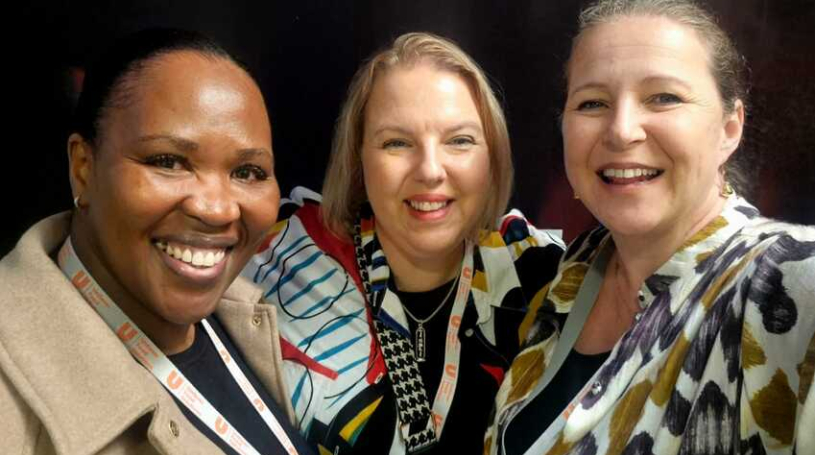Spotlight on Gastronomy Tourism: Turning Strategy into Action
At the recent SA Chef Conference & Expo 2025, SATSA’s Chief Operating Officer, Hannelie du Toit, brought her expertise to two insightful panel discussions exploring how gastronomy tourism can strengthen South Africa’s position as a destination of choice.
The first session, “Gastronomy Tourism – Turning Strategy into Action”, moderated by Amanda Kotze-Nhlapo, examined how restaurants and culinary businesses can align with the national tourism strategy to attract both local and international travellers. Sharing lessons from SATSA’s work in the adventure tourism sector, Hannelie emphasised the importance of organising the gastronomy sector into a more cohesive, collaborative network.
The panel – which included Chef Wandile Mabaso, and SA Wine Trailblazer Denzel Swarts – agreed on three priorities: developing a clear South African food identity, fostering closer working relationships between gastronomy and the inbound tourism industry, and encouraging information sharing to enable joint packaging and positioning of experiences. The message was clear: the country’s culinary offering is a powerful storytelling tool that, when strategically packaged, can set South Africa apart on the global stage.
In the second discussion, “Prepping Chefs and FOH Staff for the Optimal Convergence of Culinary and Tourism”, moderated by Gregory Henderson of the South African Chefs Association, the focus shifted to the people who bring these experiences to life. Panellists, including Professor Nellie Swart (UNISA) and Mandisa Silo (Future Leaders Challenge SA), joined Hannelie in exploring how chefs and hospitality professionals can position themselves as innovators at the intersection of food, culture, and travel.
The conversation highlighted three key enablers: storytelling as a critical skill for creating immersive guest experiences, the value of continuous professional development, and the industry’s responsibility to absorb and nurture learners and graduates. This human-centred approach highlighted that culinary tourism is not just about what is served on the plate, but also about the people, skills, and narratives that bring it to life.
Both panels reinforced that gastronomy tourism is an untapped growth area for South Africa – one that requires strategic coordination, investment in skills, and a shared commitment across sectors. SATSA remains committed to playing its part in building these connections and unlocking the sector’s potential.






















